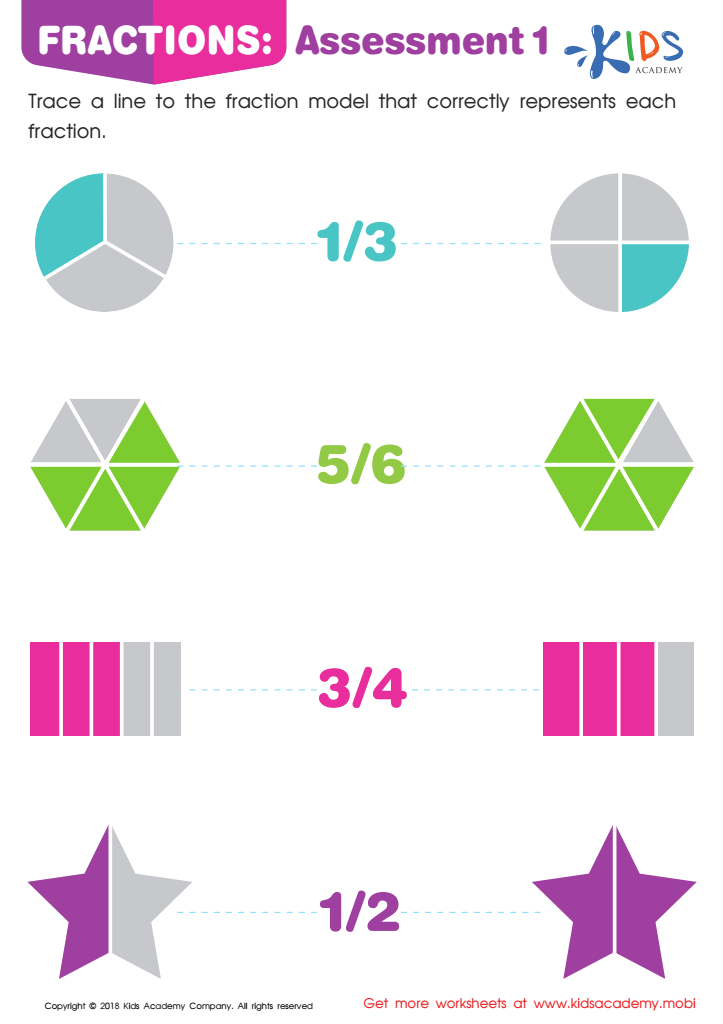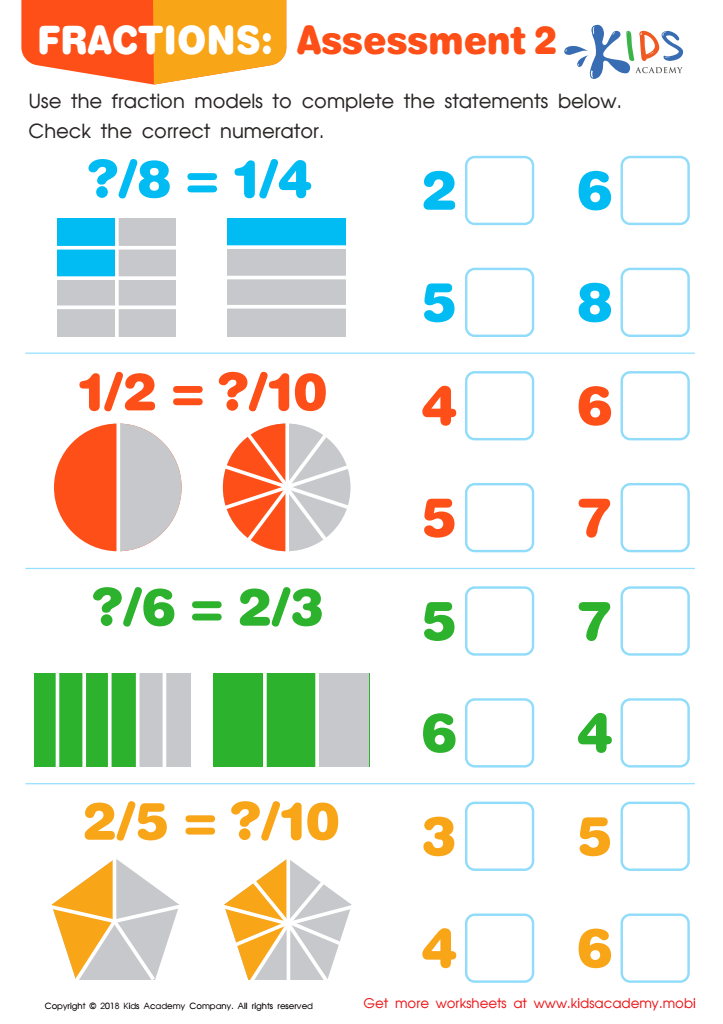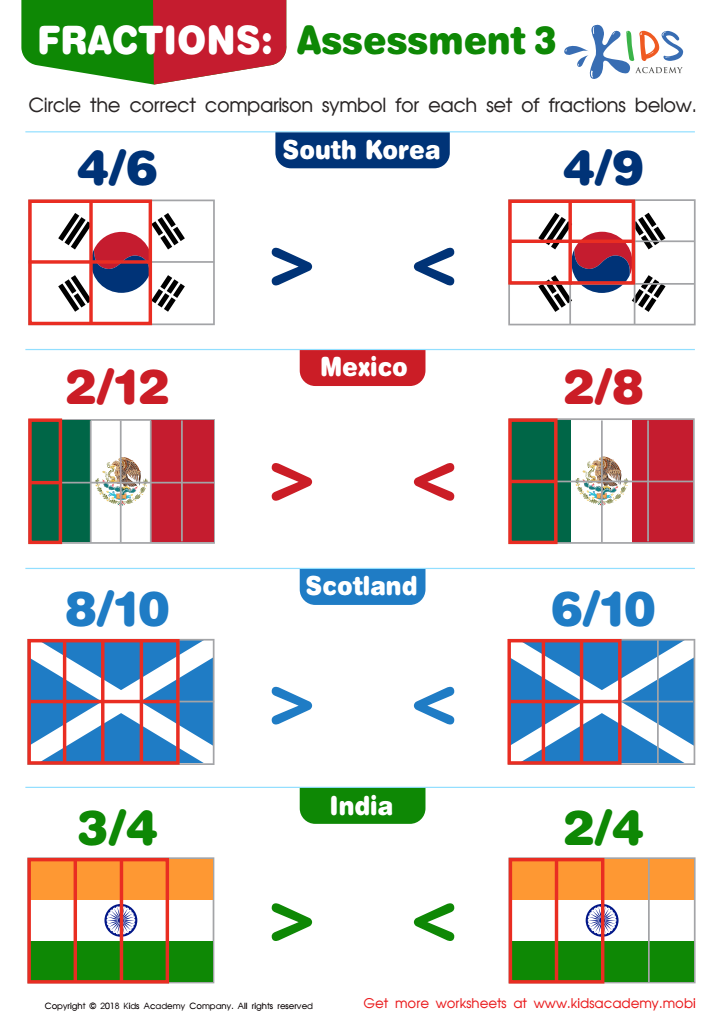Simplifying Fractions Numbers Worksheets for Ages 7-8
3 filtered results
-
From - To
Looking to help your 7-8-year-old master the art of simplifying fractions? Our Simplifying Fractions Numbers Worksheets are the perfect tool! These worksheets are tailored to make learning fun and easy for young mathematicians. Each sheet is designed to engage students with colorful visuals and interactive activities as they learn to simplify fractions. With step-by-step instructions and plenty of practice, your child will build confidence in their math skills. Perfect for classroom use or at-home practice, these worksheets are an excellent resource for reinforcing essential math concepts. Start simplifying fractions today and watch your child's skills add up!


Fractions: Assessment 1 Worksheet


Fractions: Assessment 2 Worksheet


Fractions: Assessment 3 Worksheet
Simplifying fractions is a foundational mathematical skill that provides significant educational benefits for children aged 7-8. At this developmental stage, students typically shift from basic arithmetic to more complex concepts, and understanding fractions is crucial.
Firstly, it builds number sense. Simplifying fractions helps children understand the relationship between parts and wholes, fostering deeper comprehension of numerical values. It allows them to see patterns and connections between different fractions, enhancing their overall mathematical reasoning.
Secondly, it is a building block for advanced mathematics. Mastering this skill is essential for tackling higher-level math concepts such as algebra, ratios, and proportions later in their education. It is a prerequisite for understanding operations with fractions, comparing fractions, and solving real-world problems involving fractional quantities.
Thirdly, simplification fosters computational skills. By practicing the reduction of fractions to their simplest form, children improve their ability to handle numbers efficiently and accurately. This boosts their confidence, making them more comfortable with more complex calculations they will encounter in future studies.
Lastly, it supports problem-solving and critical thinking. By breaking down a fraction into its simplest form, children learn to approach problems methodically and develop strategies for finding solutions, skills that are valuable both inside and outside the classroom.
In sum, prioritizing the teaching of fraction simplification equips young learners with critical numerical skills, preparing them for future academic success.
 Assign to My Students
Assign to My Students




















